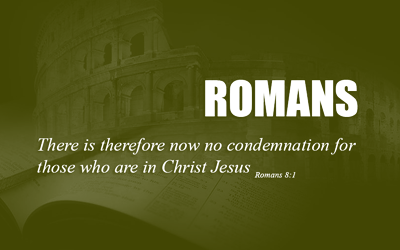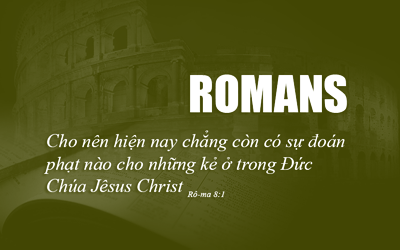Romans 4:14-15
Law, faith, and promise. Law, wrath, and transgression.
(Bấm vào đây để đọc tiếng Việt)
LAW, FAITH, and PROMISE
 "14For if they become heirs by the law, faith is empty and the promise is nullified." (Romans 4:14)
"14For if they become heirs by the law, faith is empty and the promise is nullified." (Romans 4:14)
Being declared righteous is synonymous with becoming heirs. Once again, Paul asserts that the law and its obedience have no bearing on one's admission to God's kingdom. It is worth repeating that just as God declared Abraham righteous entirely by faith (Romans 4:3), he will do the same with everyone who comes to him in faith.
Verse 14 also demonstrates that the law is the polar opposite of both faith and God’s promise. How can a Christian walk with God while also obeying the law? By doing so, we risk serving two masters at the same time: the law and Christ. We can only serve one master at a time.
The law was our master once upon a time, when we were still walking in the dark. Many people believed that its purpose was to lead us to perfection and thus achieve God’s righteousness. But that is not what the law is supposed to do. Its main purpose is to show mankind how far they have fallen short of God’s glory, and to lead them to Christ, who is the only one who can save them.
For no one is declared righteous before him by the works of the law, for through the law comes the knowledge of sin. (Romans 3:20)
Thus the law had become our guardian until Christ, so that we could be declared righteous by faith. (Galatians 3:24)
Take note of the word “until.” Its role as our guardian ended the moment we took Christ’s hand in ours. So, if you continue to follow the law or, for whatever reason, return to your old husband the law (Romans 7:3), your “faith is empty and the promise is nullified.”
LAW, WRATH, and TRANSGRESSION
“6For the law brings wrath, because where there is no law there is no transgression either.” (Romans 4:15)
Paul is not advocating the abolition of the law so that people can freely sin; rather, he informs them of God’s intention to set them free from the law so that they can properly relate to him. Being set free from the law so that they can live in an atmosphere of God’s grace and mercy rather than fearing the punishment imposed by the law. As a result, “the law brings wrath.”
The following verses can help explain the meaning of verse 15 above concerning the law’s wrath:
8But sin, seizing the opportunity through the commandment, produced in me all kinds of wrong desires. For apart from the law, sin is dead. 9And I was once alive apart from the law, but with the coming of the commandment sin became alive 10and I died. So I found that the very commandment that was intended to bring life brought death! 11For sin, seizing the opportunity through the commandment, deceived me and through it I died. (Romans 7:8-11)
1 Corinthians 15:56 adds another point of clarification:
The sting of death is sin, and the power of sin is the law. (1 Corinthians 15:56)
So, how do you remove the power of sin from your life? Consider how your adherence to the law has aided you.
Nghi Nguyen
- Scripture quoted by permission. All scripture quotations, unless otherwise indicated, are taken from the NET Bible® copyright ©1996-2006 by Biblical Studies Press, L.L.C. All rights reserved.
Disclaimer: This is my own opinion on the topic, which does not necessarily reflect the church's theology, or beliefs of the individuals in it — Nghi Nguyen
